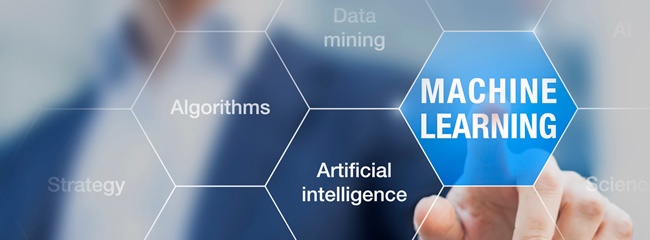Written by Karen Pursch, Director, Patient Privacy Solutions

I was reading an article that was published on February 3, 2015 by Bloomberg Technology, I’ll Be Back: The Return of Artificial Intelligence, and definitely can relate to the title of the article.
Okay, I know that I am dating myself, but in the 1980s, I just had completed my Computer Science degree, and started working at the Jet Propulsion Laboratory in Pasadena, California… The place where everyone was called a "rocket scientist!"
So you can see why I liked the reference to The Terminator, because when I think of Artificial Intelligence (AI), I think of what we did at JPL – for example, planetary rovers – very cool! I recently watched a documentary where AI was used in drones, to create swarms, where each drone communicated and learned from each other, for one overall purpose. Well, you can see that I'm also a Trekkie, and way off the subject of this blog.
We see a glimpse of AI in many aspects of our lives – Apple’s Siri, AI in our cars, Google searches, Amazon’s Echo, and many others. When it comes to healthcare, I believe when we think AI, we gravitate to IBM Watson for cognitive learning. IBM Watson launched its special program for oncologists to provide clinicians evidence-based treatment options. Watson has the ability to analyze the meaning and context of structured and unstructured data in clinical notes and reports and select a treatment pathway.
The Wikipedia definition of AI is intelligence exhibited by machines. The term is applied when a machine mimics “cognitive” functions that humans associate with other human minds, such as learning and problem solving.
In my opinion, AI and machine-based learning are coming back to be used in healthcare, because of the influx of “big data.” We need to use computers and software to help us understand the data, put the data in context, and take action from that data.
I don’t think in healthcare we are at a point for machines to replace humans, like in The Terminator movie, but we are at a place in time where we need to rely on computers and algorithms to help us with decisions we need to make. The amount of data to analyze is far too great for humans to absorb without the use of machines.
At Iatric Systems, we are using forms of AI in our patient privacy solutions – Security Audit Manager™, and in our Analytics on Demand™ Clinical Solutions. In both of these cases, we developed point solutions to analyze large amounts of disparate data, and learn from that data in context.
We use algorithms to evaluate which instances are inappropriate accesses from millions of audit logs that are sent to Security Audit Manager daily. The algorithms learn from data, especially when looking at the behavior of the users. Anything outside of the “norm” is an outlier and should be investigated further. The most important end result from this use of this technology, is that patient privacy audits are reduced by an average of 95%.
With Analytics on Demand for Sepsis Management, we use a variety of algorithms to analyze real-time data about the patient, and send alerts about the patient sepsis status and prescriptive clinical workflow options to help the caregivers treat the problem proactively.
Don’t let Artificial Intelligence and Machine-based Learning scare you, or lead you to believe this is a new idea. Focus less on the underlying technology, and more on how it is used for predictive and prescriptive analytics. As a community, we need to look at the results — how is this technology improving patient care, and how is it reducing the amount of data that I need to see to make informed decisions. Can this be applied like IBM Watson, to analyze the meaning and context of data and select a treatment pathway?
Healthcare is now at a point in time, because of the combination of the adoption of electronic health records and AI-like technology, to make progress in predictive and prescriptive analytics. It can be applied in healthcare use-cases such as breach detection, sepsis management, readmission, triage, and many more.
Even though we are not at the point to create machines that we saw in The Terminator (by the way, that is a good thing), we can start applying machine-based learning when appropriate to the software we develop for healthcare.